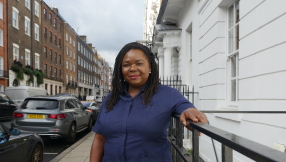Birmingham Faith Groups Lament Lack of Communication with City Council
Particularly criticised by representatives of the Council of Black-led Churches and the Birmingham Council of Faiths was the lack of a formal consultative process and the way in which official communication with the local authority was limited only to one-off responses to high profile events, like last year’s outbreak of public disorder in Nechells.
Chairman of the Council of Black-led Churches, the Rev. James Herbert, told an investigative committee that there were no designated council officers responsible for liaising with faith groups on a regular basis, reports icBirmingham.
“If the council wants to talk to us it tends to be linked to issues,” he said. “There is no formal means of engaging with the local authority, which makes decision-making and community cohesion a difficult process. We have lost the means of communication."
|AD|The comments cast doubt over the assurances of Birmingham City Council’s Tory-Liberal Democrat coalition that faith groups and the voluntary sector would play a greater role in the governance.
The Rev Richard Tetlow, liaison officer for the Birmingham Council of Faiths, admitted: "We have no formal representation with the council. The basic issue is how the council fosters faith groups.
"Birmingham has a marvellous opportunity to work out how we work and live together happily. Faith isn't going to go away."
On-going plans by the city council to establish a multi-faith forum have also hit a wall as those involved in the process admit that they have failed to reach consensus over the size and composition of the body.
The investigative committee was told that any attempt at organising a standing consultative body would be made difficult by the large number of churches in Birmingham, as well as the diverse spectrum of faiths across the city.
Guy Hordern, a member of the Birmingham Standing Advisory Committee on Religious Education, however, urged the council to pay more attention to the importance of faith groups. He said: "Some of the most successful regeneration projects in Birmingham are being brought forward by faith-based organisations."
According to the last census, Christians make up just under 60 per cent of the inhabitants of Birmingham, while 14.3 per cent are Muslim, 2.9 per cent are Sikhs, Hindus make up 2 per cent and Jews and Buddhists less than one per cent.













